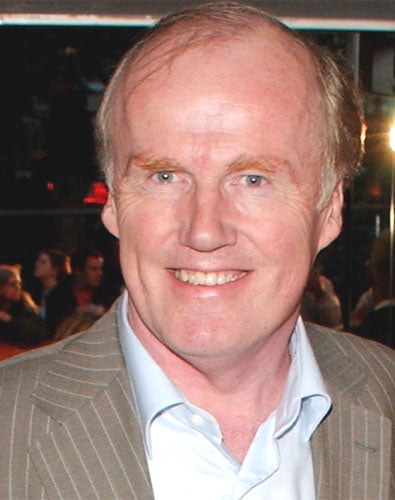David Davies: Blatter-style leader can end mess at Soho Square
The former acting chief executive of the FA says an elected head is needed in order to avoid a repeat of this week's events

To begin with, a personal anecdote that seems to say everything about the chronic instability inherent in the way English football is run. It is an instability that impeded the Football Association in my time there and which, as the FA loses its fifth chief executive in little more than a decade, is clearly still damaging it today.
The story dates to the day after Brian Barwick, Ian Watmore's predecessor, was appointed chief executive. I was walking into Soho Square to find a stray Sky TV cameraman and reporter waiting to record my opinion. It was more than five years ago but those were different times – just the one camera crew! "Everyone will want to get behind Brian," I told them. Within minutes of this innocuous clip being screened I had a senior FA board member on the phone. "Speak for yourself," he said.
That's the FA for you: an organisation whose structure – with the FA, the Premier League, the Football League and all the many other organisations there are which run football – creates inherent conflicts. I was acting chief executive for longer than some of the permanent chief executives have lasted and I'm certainly familiar with the internal battles and the way that some jobs are actually set up in competition with each other. We had a situation during my time there where we discovered that the England under-21 coach was reporting both to the England senior coach and the technical director at the same time.
The kind of power struggles that have seen Ian leave are actually far older than that. The FA and the old Football League knocked ten bells out of each other for years. Look at Alan Hardaker and Sir Stanley Rous in the Sixties and Seventies. But it's clear that that cannot go on any longer.
There has been a failure to pull these people together in a way that has enabled English football actually to know what its priorities have been this season. But the game is too big for the old structures to work now. The challenge for the board is to confront the problem; to acknowledge – as any other corporate business would – that losing five chief executives in a decade must reflect a problem in football's structure, rather than all five of those men being below par.
There are certainly individuals there who I believe are able to grasp the issue and for whom I have a great regard: David Gill, David Sheepshanks and a number of others. The solution I put to them again is the appointment of a president or chairman, elected every four years by members of the Football Council representing the whole of the game, who would have the authority to assemble around them a body of staff of the highest calibre. If they failed, they could be removed. People have different views of Sepp Blatter and of Michel Platini, who are appointed in similar ways, but no one has any doubt that they are the key people at Fifa and Uefa. Both carry a mandate. Appoint such a person and maybe a chief executive, appointed alongside a chairman, is unnecessary. A director of operations would be sufficient.
I should declare that in my time as acting chief executive, with others, I proposed something similar. The 2005 Burns Report argued for the appointment of independent directors on the FA Board. Two years earlier I and Nic Coward, now chief executive of the British Horseracing Authority, made a similar proposal, which we put to the board in March of that year. We stood up, made our presentation and believed passionately in our case. The answer we received was unequivocal: "No," the board said. We had grown used to such frustration. So, I suspect, had Ian Watmore. I believe I know a little about how he feels today.
Join our commenting forum
Join thought-provoking conversations, follow other Independent readers and see their replies
Comments